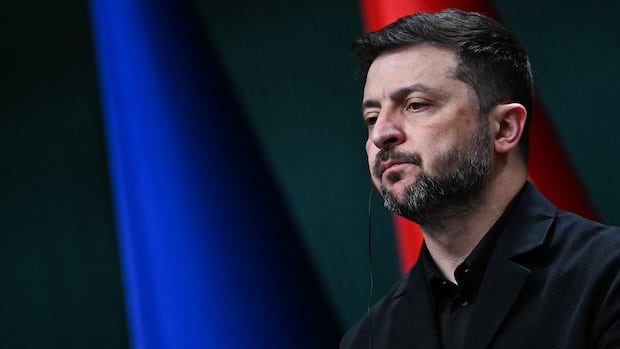Zelenskyy & US to Craft Ukraine Peace Plan Amidst UN Talks, Red Line Demands & Humanitarian Concerns
 Ukraine
International Relations
Ukraine
International Relations

Zelenskyy plans to work with the U.S. on a peace proposal for Ukraine, despite initial rejections of concessions. UN Security Council meets as humanitarian cris
Zelenskyy & US Collaborate on Ukraine Peace Plan Amidst UN Debates
The United Nations Security Council recently convened a critical briefing concerning peace and security in Ukraine, a discussion framed by an evolving peace proposal involving both the United States and Russia. Ukrainian President Volodymyr Zelenskyy has confirmed his administration's willingness to engage with the U.S. on this American-initiated draft, even though initial reports indicate it contains significant concessions, such as the potential ceding of parts of eastern Ukraine and partial disarmament—terms Kyiv has previously stated it will not accept.
Diplomacy Meets Conflict: UN Session Highlights
Throughout the ongoing UN deliberations, numerous member nations, including Slovenia and South Korea, reiterated urgent calls for an immediate ceasefire, emphasizing the paramount need to safeguard civilian lives. This diplomatic push occurred concurrently with revelations of a major corruption scandal within President Zelenskyy’s own administration, specifically linked to its nuclear energy agency.
Addressing his nation via video, President Zelenskyy underscored the critical nature of a constructive diplomatic process. "Ukraine needs peace and Ukraine will do everything so that no one in the world can say we are upending diplomacy," he declared. He further stressed the essential requirement for "stable support for our army and all our planned defence operations and deep strikes," signaling that while diplomatic avenues are pursued, robust defense capabilities remain a core priority.
In a stark reminder of the conflict's ongoing brutality, a Russian attack on the southeastern Ukrainian city of Zaporizhzhia reportedly resulted in five fatalities and three injuries, occurring even as the Security Council meeting was underway. This incident starkly highlighted the persistent violence despite international diplomatic efforts.
Ukraine's Unwavering "Red Lines" for Peace
Khrystyna Hayovyshyn, Ukraine's deputy permanent representative to the UN, articulated Ukraine's non-negotiable "red line" conditions for any prospective peace agreement. She unequivocally rejected any form of recognition, formal or otherwise, of Ukrainian territory currently occupied by the Russian Federation as "Russian." Furthermore, Hayovyshyn affirmed that Ukraine would not countenance any limitations on its sovereign right to self-defense, the operational size and capabilities of its armed forces, or any infringement upon its national sovereignty, including its prerogative to choose alliances.
Emphasizing a foundational principle, Hayovyshyn asserted: "Nothing about Ukraine without Ukraine and nothing about Europe without Europe," thereby stressing the imperative of Ukraine's direct and central involvement in shaping its own future. She also confirmed that Ukraine had submitted its response to the U.S. draft proposal, expressing agreement to work on its provisions with the objective of achieving a "just end of the war."
International Perspectives and Humanitarian Crisis
Michael Waltz, the U.S. permanent representative to the UN, reiterated that a sustainable and just peace would ultimately not be achieved through military means. He called for direct negotiations between Russia and Ukraine and an immediate ceasefire, acknowledging the profound and devastating costs of the war for all parties involved. In contrast, Russia's representative, Vassily Nebenzia, used the platform to highlight the alleged $100 million corruption scandal within Ukraine's nuclear agency, subtly criticizing the council for its perceived silence on the matter.
Representatives from Slovenia and the UN Office for the Coordination of Humanitarian Affairs provided grim updates on the escalating humanitarian crisis. Slovenia condemned Russia's systematic drone warfare and the accelerating rate of civilian casualties. The UN reported that nearly six million Ukrainians have been forced into refuge, with an additional 3.7 million displaced internally. Alarmingly, a pattern of attacks targeting critical infrastructure, including almost 500 health facilities this year alone, was also documented. A significant rise in civilian deaths in Kyiv was also noted, with the first ten months of 2025 recording nearly four times the casualties of the entirety of 2024.
The overarching call during the session was for an immediate ceasefire and strict adherence to international law. The international community continues to grapple with the intricate challenge of bringing an end to the conflict while simultaneously upholding Ukraine's fundamental sovereignty and territorial integrity.